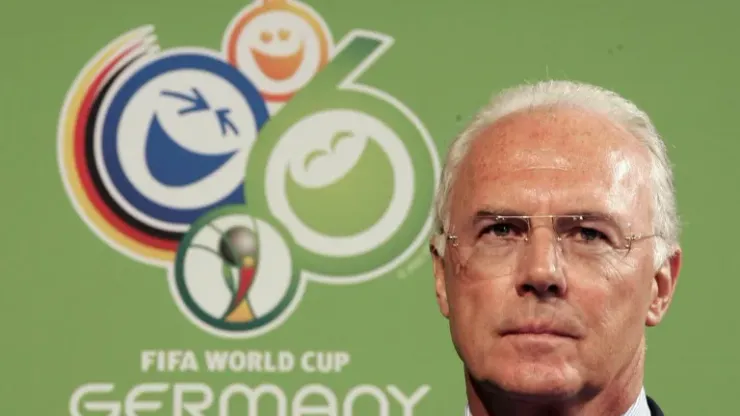Berlin (AFP) – In football-obsessed Germany, Franz Beckenbauer is referred to as “the Kaiser” — the regal defender who steered his country to World Cup triumphs as both a player and a manager.
Beckenbauer, who turns 71 on September 11, still enjoys legendary status, but his reputation has been badly tarnished by his role in the ongoing scandal over the awarding of the 2006 World Cup finals to Germany.
In his playing days, Beckenbauer was a commanding figure on the pitch, whether playing for Bayern Munich or West Germany.
Born in Munich in 1945, he helped establish Bayern as his country’s strongest club.
He captained West Germany to the 1974 World Cup title on home soil when they beat the Netherlands 2-1 in the Munich final, then managed the team that beat Argentina 1-0 in Rome to lift the trophy at Italia 90.
Beckenbauer was named European footballer of the year in both 1972 and 1976.
He made 424 appearances in the Bundesliga, scoring 44 goals, including in a 13-year spell for Bayern, before joining Hamburg and New York Cosmos, where he finished his playing career in 1983.
After West Germany won the 1990 World Cup, Beckenbauer had stints on the bench in club football at both Bayern and Marseille, winning the French league title in 1991 and the Bundesliga in 1994.
In 1996, he stopped coaching and his role as president of Bayern led to a place on the Executive Committee with football’s governing body FIFA.
– Story turns sour –
Off the field, Beckenbauer led Germany’s successful bid to host the 2006 World Cup.
He later became head of the organising committee and the successful tournament is still nostalgically referred to in Germany as “die Sommermaerchen” — ‘The summer fairytale’.
However, the story turned sour last October when Der Spiegel first broke the cash-for-votes scandal story.
The magazine alleged that, in 2000, the German Football Association (DFB) had bought the votes of four Asian members of FIFA’s 24-strong executive committee to secure the hosting of the 2006 World Cup finals.
Germany beat South Africa with 12 votes to 11 after New Zealand’s Charles Dempsey abstained in the final ballot.
“I have not sent anyone money to acquire votes for the awarding of the 2006 World Cup to Germany,” said Beckenbauer at the time, while the DFB also strenuously denied the claims.
“And I’m sure that no other member of the bidding committee did either.”
Beckenbauer has subsequently maintained his innocence, but, in May, an independent inquiry commissioned by the German Football Association (DFB) said it could not rule out that Germany bought votes to secure the 2006 finals.
In March 2016, FIFA’s Ethics Committee opened formal proceedings, which are still ongoing, against Beckenbauer regarding the awarding of the 2006 finals.
He had already been banned by world football’s governing body in June 2014 for 90 days from any football-related activity.
He allegedly refused to cooperate with an inquiry into corruption relating to the awarding of the 2018 and 2022 World Cups to Russia and Qatar respectively.
Beckenbauer protested, as he had requested the questions that were put to him be in German and in writing, and the ban was lifted after he agreed to participate in FIFA’s inquiry.
Now the Swiss accusations of fraud, criminal mismanagement, money laundering and misappropriation against Beckenbauer and three other members of the 2006 organising committee are the latest blows to the elderly “Kaiser Franz”.
200+ Channels With Sports & News
- Starting price: $33/mo. for fubo Latino Package
- Watch Premier League, Women’s World Cup, Euro 2024 & Gold Cup
The New Home of MLS
- Price: $14.99/mo. for MLS Season Pass
- Watch every MLS game including playoffs & Leagues Cup
Many Sports & ESPN Originals
- Price: $10.99/mo. (or get ESPN+, Hulu & Disney+ for $14.99/mo.)
- Features Bundesliga, LaLiga, Championship, & FA Cup
2,000+ soccer games per year
- Price: $5.99/mo
- Features Champions League, Serie A, Europa League & Brasileirāo
175 Premier League Games & PL TV
- Starting price: $5.99/mo. for Peacock Premium
- Watch 175 exclusive EPL games per season







